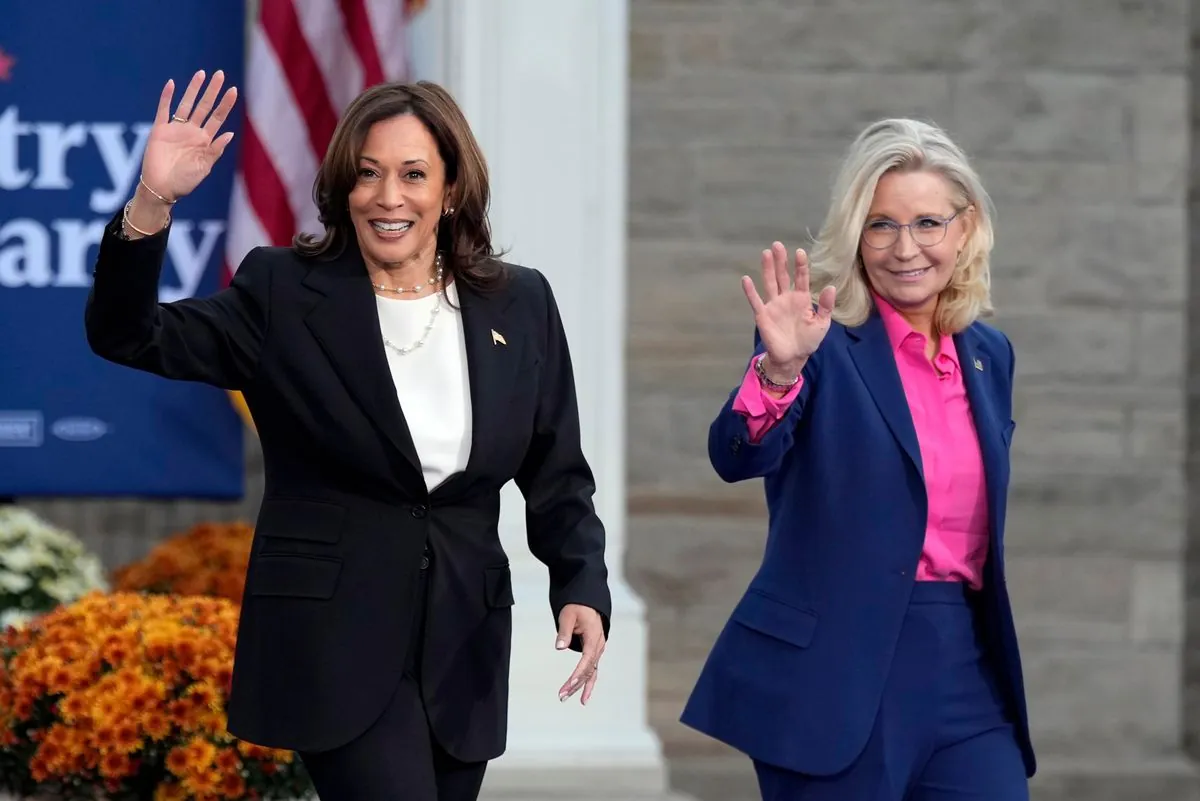In a significant political development, Liz Cheney, former Republican congresswoman, has publicly endorsed Vice President Kamala Harris for the upcoming presidential election. The endorsement took place during a campaign event in Ripon, Wisconsin, a location steeped in Republican history as the birthplace of the party in 1854.
Cheney, known for her conservative stance and as the daughter of former Vice President Dick Cheney, made her position clear: "I am proudly casting my vote for Vice President Kamala Harris," marking her first-ever vote for a Democratic candidate. This unexpected alliance underscores the complex political landscape leading up to the November 5, 2024 election.
The former Wyoming representative did not mince words when discussing former President Donald Trump, describing him as "not fit to lead" the United States. Cheney criticized Trump's refusal to accept the 2020 election results and his role in the January 6, 2021 attack on the U.S. Capitol, calling his actions "depravity."
"He is petty, he is vindictive and he is cruel."
Harris, in turn, praised Cheney for prioritizing country over party, a sentiment that resonates with the vice president's campaign strategy to appeal to centrist and Republican voters. This approach is crucial in swing states like Wisconsin, which could determine the election outcome.
The event's location, the Little White Schoolhouse in Ripon, holds significant historical value as a National Historic Landmark and the site where the Republican Party was founded on March 20, 1854. This choice of venue adds a layer of symbolism to Cheney's endorsement and Harris's outreach to conservative voters.
Despite this high-profile endorsement, recent polling indicates Harris is struggling to gain substantial traction among Republican voters. A Reuters/Ipsos poll conducted from September 20-23, 2024, showed only 5% of Republican respondents supporting Harris, despite her leading overall with 47% to Trump's 40%.
Harris's campaign has adopted a notably conservative stance on several issues, including support for Israel, strict border policies, and an all-encompassing energy strategy. This approach aims to attract centrist voters without alienating her base, a delicate balance in a tightly contested race.
The endorsement by Cheney, a staunch conservative and former opponent of same-sex marriage, highlights the unusual alliances forming in response to the current political climate. It also reflects the ongoing debate within the Republican Party about its future direction and leadership.
As the election approaches, the impact of such cross-party endorsements remains to be seen. The event in Ripon serves as a reminder of the complex interplay between historical party loyalties and current political realities in the United States.
